A Short Spiritual Itinerary with the Acts of the Apostles
Fr. Gianluigi Valtorta (a Camillian)
Bucchianico – 4/6 September 2014
Esteemed religious brothers and friends of the Great family of St. Camillus
In Bucchianico, the home town of St. Camillus, this week a goodly number of our religious brothers have met to share a period of great spiritual incandescence! They will be accompanied in their spiritual reflections by the Camillian religious Fr. Gianluigi Valtorta.The course of exercises will end on 6 September with the liturgy for the entrance into the novitiate of three young men. For those of you who wise to accompany this experience at a distance, sharing some thoughts of a spiritual nature, we here offer you three abstracts from the talk given by Fr. Gianluigi.
INTRODUCTION
The preacher has chosen three phrases by which to lead these three days and in relation to which to engage in discernment, starting above all else with our current experiences: REJOINING THE JOURNEY, REDISCOVERING COURAGE, LEARNING TO DARE
Our journey has not stopped, but after the numerous and incumbent jubilee celebrations of the fourth centenary of the death of our Founder the moment has come to express in our lives the conspicuous ingredients that ‘celebrating’ has once again showed to us.
REJOINING THE JOURNEY!
To do this courage is needed, and this is ‘decision’, determination and firmness. This, too, should be retrieved in the sense that courage has already inhabited our history and made it singular when we accepted journeying behind Jesus (discipleship) and that giant of charity, our Father Camillus. We have to go back to that. To an audacity that should mark us out and also characterise us.
REDISCOVERING COURAGE!
And lastly, we should learn to dare. A traineeship awaits us, an initiation, a running in, making ourselves capable of ‘risking’. To bring into play what we are, what we have. Because our memory, in addition to being a memory that is grateful for what we have received, should be a portrayal of what we are really called to be. People ready to engage in risks, able to wager the impossible.
LEARNING TO DARE!
Against the background of these demands and solicitations, it seemed to me that the theme of these three days of reflection and prayer could be well summed up by a phrase that we find in the Pentecost: ‘Like a strong blowing wind’. With all that this evokes and symbolises.
The point of reference will be three passages taken from the Acts of the Apostles. I would like to draw stimulus and indications from there so as to make our pathway more effective. The Acts are a ‘missionary’ text to the utmost and offer us a living image of the first Christian community. They place us face to face with the grace and the difficulties of the beginnings and place us in harmony with the real protagonist of ecclesial action – the Spirit. Celebrating the fourth centenary of the death of our Founder is a constant affirming anew of that ‘incandescent core’ – our charism. A gift that releases forms, experiences and situations to which we are called every day to address and which we are called every day to reflect ourselves in.
Certain observations on certain passages taken from the Acts of the Apostles will be offered here. Free observations that would like to set in journey in motion. A journey that would like to takes us far away from our habits and customs in order to open us up to the new, to a newness of life. A ‘new’ that we live, that we breathe. But a ‘new’ that some people are subjected to and that others do not understand. A ‘new’ that we are asked to understand. A newness symbolised for us, to be precise, by taking up the journey again, by a retrieval of courage and by a capacity for risk.
Thursday 4 September 2014
First reflection: ‘Departure’ (Acts 1: 1-11)
Like a strong blowing wind’ (Acts 2:1-13)
In chapter 19 of the Acts of the Apostles we are told of an emblematic episode. At Ephesus, Paul finds some disciples and asks them: ‘Did you receive the Holy Spirit when you came to the faith?’ And they answered him: ‘We have not even heard that a Holy Spirit existed’. The answer of these Christians of Ephesus could be that of so many people, of many Christians today. For a large number of others, their relationship with the Holy Spirit does not go beyond the acceptance of his existence. The passage from the Pentecost opens with a comment on the time. ‘While the day was drawing to a close’. It is evening, therefore. Darkness is falling and the Apostles are still there. Perhaps they do not have the feeling that it has been a good day or that they have experienced something that is good. Nothing has happened. But the best has still to come. It is comforting to behold the Spirit who comes down in the evening, when perhaps hope is beginning to go down with the setting of the sun, when darkness and fear are about to arrive. It does us good to think of a Spirit who comes to visit us in the evening, almost to redeem a day that has been, perhaps, one of disappointments, of dashed hopes.
The Spirit is a friend who comes in the evening, when loneliness makes itself felt with great force, when the shadow of depression or sadness grows larger and leads us to think that our lives are flowing away or that we have done nothing good. It has the colour of fire like the finest sunsets, and teaches us not to lose hope, not to believe that by now it is too late, that we have worked and waited in vain. It gives us the strength to face up to the night. I want to try to narrate certain signs in order to provide a physiognomy of the Spirit that is given to us and to the horizons that open up to our action and our responsibilities. The most evident are: wind, fire and the word (the others I will return to later).
‘Wind’ is a symbol of great evocative strength. It is mysterious in its origins, passes by penetrating all spaces, expressing a dynamism on a broad scale, intolerant of all forms of constriction. To open oneself to the action of the Spirit therefore means to become ‘surprising’ people who are in some way inexplicable. Who do not follow, that is to say, the trajectories compelled by common sense, the roads trod by general mediocrity, the itineraries planned by the ‘that’s what everybody does’, nor the pathways well marked by habit, by custom and by repetition. The Spirit is free, like the wind! Unpredictable and a lover of far off horizons. Christian life, and religious life above all else, is faithful to the Spirit to the extent that it shows that it is able ‘to surprise’. To be amazed and to be astonished (first) and also able to amaze and astonish.
Then wind is ‘ineffable’. It escapes. It cannot be put in a cage, administered, controlled, or governed. Wind is unstoppable. Uncontainable. Overwhelming. In its unstoppable action it overwhelms all obstacles, sweeps away fears, shakes prejudices, removes certainties and crushes the hardest forms of resistance. The wind cannot be stopped. The wind carries us and carries where we do not want to go. The wind, therefore, is a dynamic reality and not a static one. It is not possessed. The wind possesses us. The wind cannot be commanded. We make ourselves available to it. The wind cannot be explained. Its effects are seen. One cannot impose a direction or a scale on the wind. It is the wind that establishes its direction and its scale. Let us try to think about it: to welcome the Spirit into one’s life means to welcome the wind. And thus all the effects that it produces, the characteristics that define it. When this strong blowing wind enters the world or the existence of a person, there is just one certainty: nothing is as it was. The Spirit never leaves things, or people, as they were. He leaves nothing and nobody in their place.
But the Spirit also takes the form of ‘fire’. Fire, in essential terms, has a threefold action: that of illuminating, of warming and of purifying. To produce light, that is to say to generate heat, and to clean. And then fire also tends to propagate itself, to prolong itself. It does not manage to remain within its limits. To possess the Spirit means (to a certain extent) to ‘handle fire’. It means to become people who are not innocuous, in relation to whom one cannot be indifferent. People that leave a mark behind them. A sign, above all else, of light and of warmth. As regards purification, fire, to transform, has to free matter of all its impurities, waste, and stains. There is no conversion without change, there is no change without purification, and painless purification does not exist. Fire ‘scalds’, ‘burns’, ‘consumes’. To entrust oneself to fire means to acquire transparency.
The last image (which I want to narrate) is that of the ‘word’. The Spirit, which is wind and fire, is converted into proclaiming. Perhaps it is right to observe how our words, when they are not deceitful, far too often are empty, inexpressive and dispersive. They are just chatter which dances in emptiness because they are not ignited by fire and not carried by the wind. With the Spirit, our word, our words, create a wonder of truth and an emotion of friendship because each person feels that that ‘word’, which is full of light and of love, is said precisely by him, heart to heart, and brother to brother. I believe that the signs of Pentecost tells us about the characteristic identity of a Christian (but even more of a religious) which we are always called upon to rediscover: the identity of ‘being dangerous’. The wind, fire and words are dangerous! One should be afraid not of these signs (and of the experiences that accompany them) but of an insignificant Christian and religious life which has nothing to say, which troubles nobody. Timid, irrelevant. Reassuring rather than troubling.



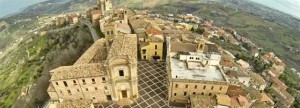
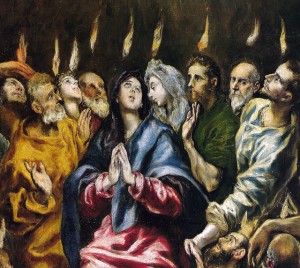
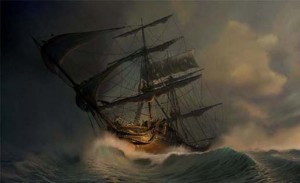
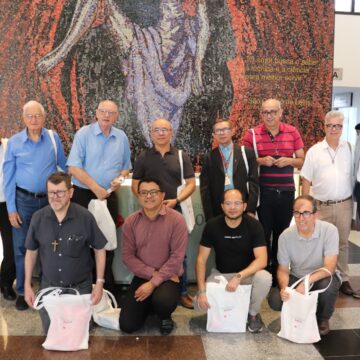
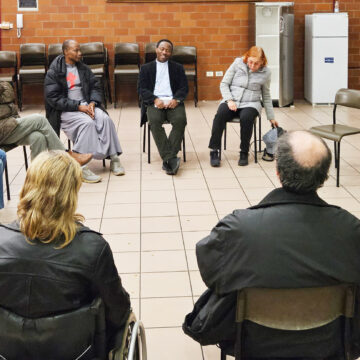
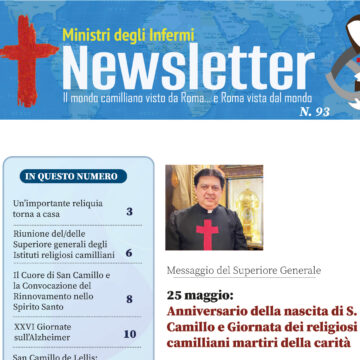
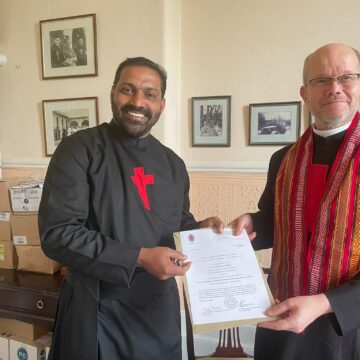
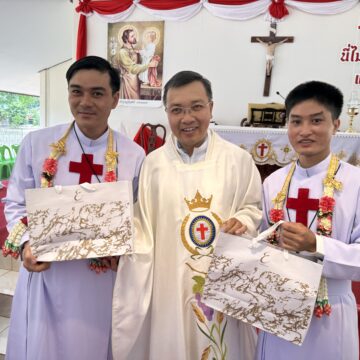
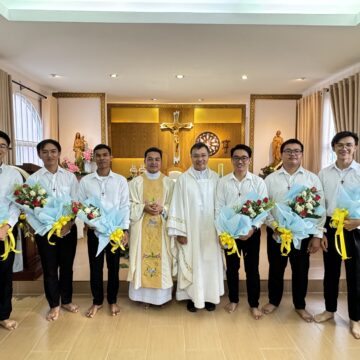
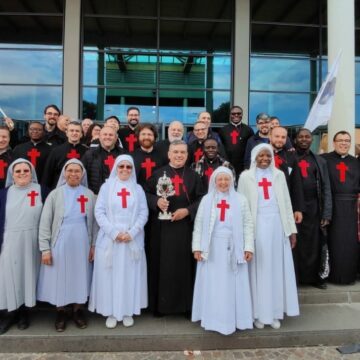
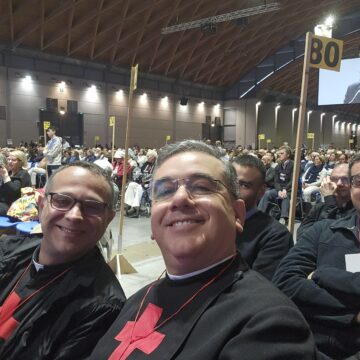
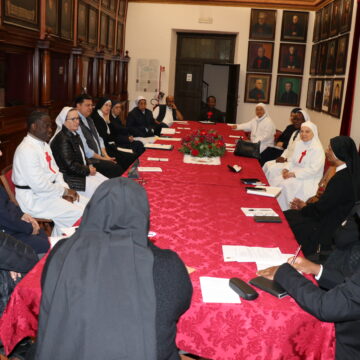
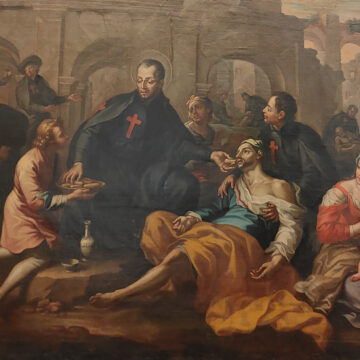


Camillians on Facebook
Camillians on Twitter
Camillians on Instagram